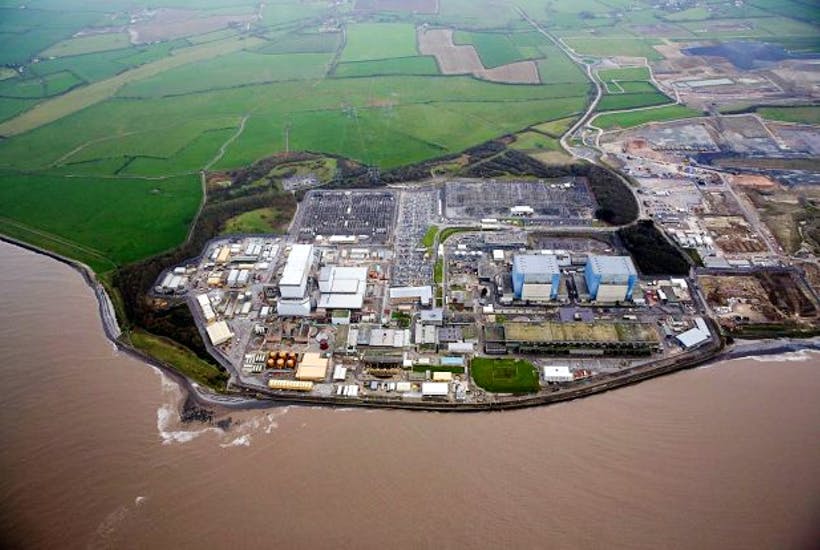Theresa May spent her first few months as Prime Minister reversing many of her predecessor’s policies. But there is one which she may well end up regretting that she failed to reverse: going ahead with the contract for French state electricity company EDF to build the Hinkley Point C nuclear power station. Yesterday, EDF announced that its estimate for the construction cost of the project has risen £1.5 billion to £19.6 billion, and that the project could be delayed by yet another 15 months.
Notionally the extra costs will not fall upon taxpayers – EDF is supposed to be shouldering the risks for the project, for which it is being handsomely rewarded with a guaranteed price of £92.50 per MWh for the first 35 years of operation, roughly twice what electricity distribution companies pay for power. The cost will be passed onto consumers.
Yet the reality is that EDF has the government by the short and curlies. If, late in construction, EDF threatens to walk away, Britain will be left with a rather large hole in its electricity supply. Hinkley C is supposed to generate 7 per cent of the nation’s electricity. How would that gap be filled without Hinkley C, given that many of the coal-fired stations it is due to replace will have been closed down in advance of Hinkley’s opening? The overwhelming likelihood is that EDF will come to the government with a begging bowl at some point – as happened, for example, in the case of the Channel Tunnel Rail Link.
The latest development comes only 10 days after the National Audit Office (NAO) published a scathing report on the decision to go ahead with Hinkley C. The government, it said, has ‘locked consumers into a risky and expensive project with uncertain strategic and economic benefits’. It failed properly to assess alternative financing arrangements and negotiated bilaterally with EDF without considering competition from alternative nuclear developers.
The whole thing demonstrates how far the privatisation of utilities has fallen short of creating free markets. There is no involvement in markets in the decision to go for Hinkley C. It wasn’t consumers who decided to buy nuclear energy; the government made the decision on their behalf, and committed them to this expensive option for 35 years. Moreover, the government itself didn’t even use the market to select a firm to construct the power station – it simply opted for the first potential supplier which came into its head, which happens to be another country’s state-owned electricity company. It is rather as if, rather than having a choice of whether to go the Tesco, Sainsbury’s or Waitrose, the government had decided on our behalf that we will all have to eat food bought in bulk purchase from state farms in Kazakhstan.
At the same time, Theresa May is telling us that the market in consumer electricity prices hasn’t worked and that she will have to cap the costs. Unless the government can demonstrate that there is some kind of advantage from privatisation of utilities, the stronger public support will grow for the Corbyn option of renationalising them.







Comments